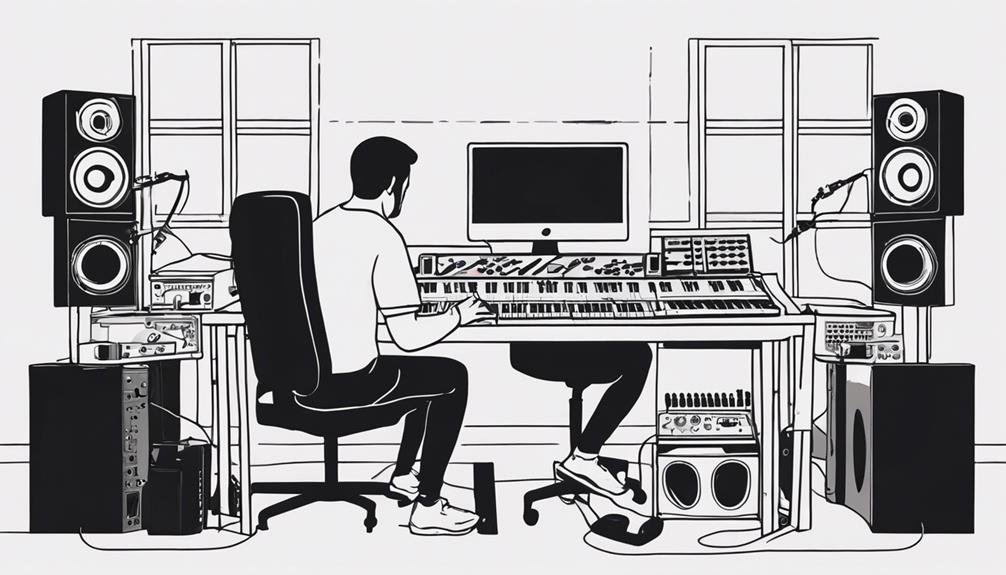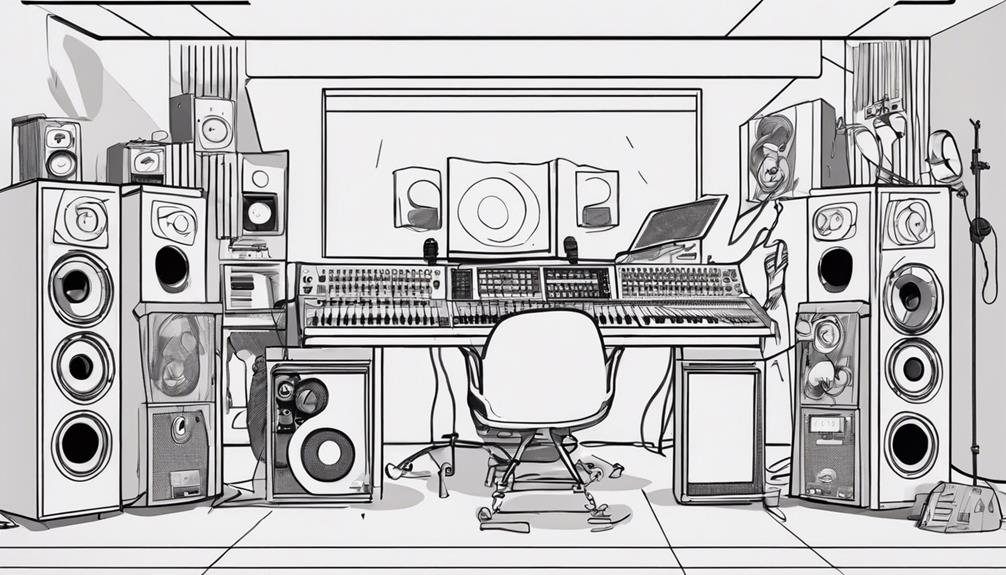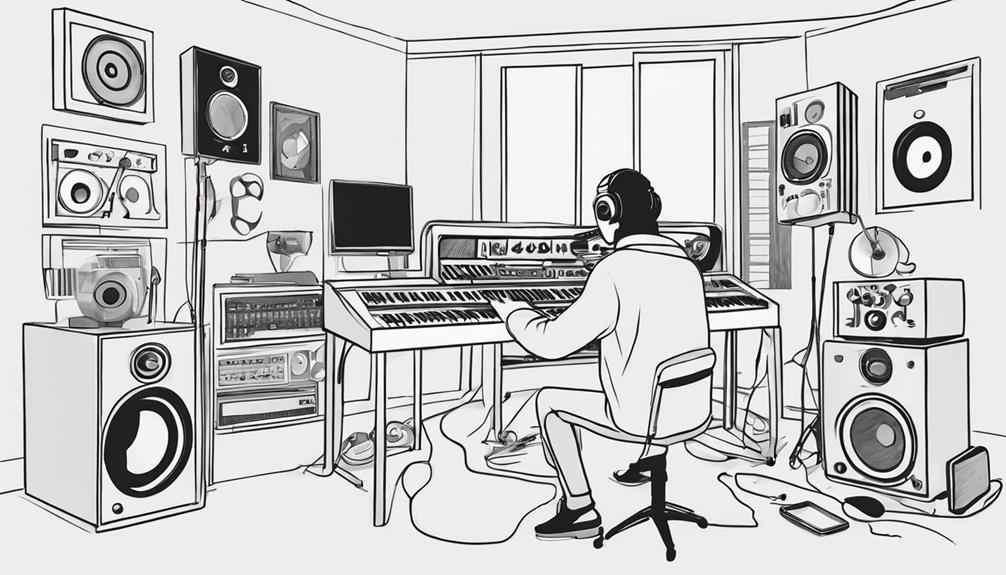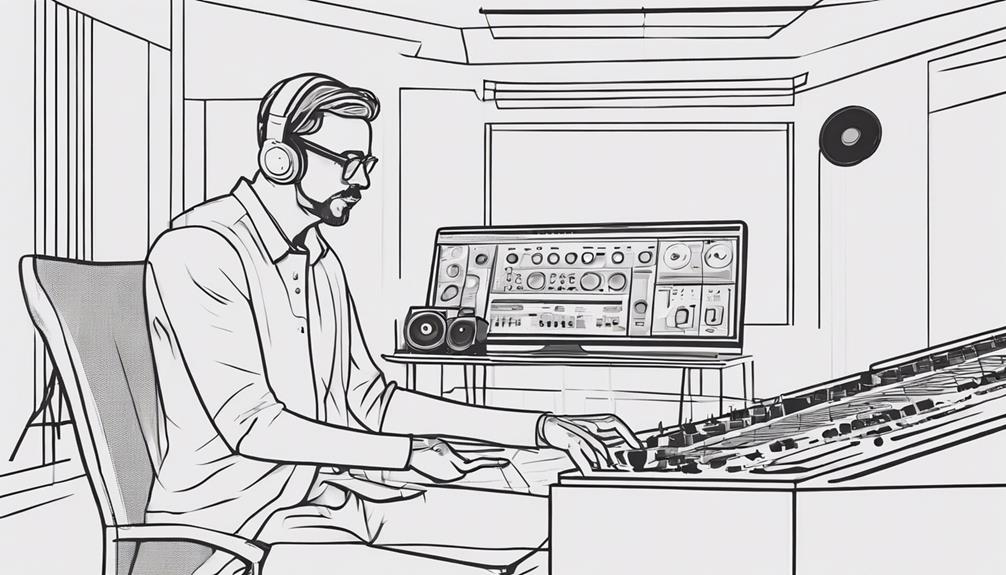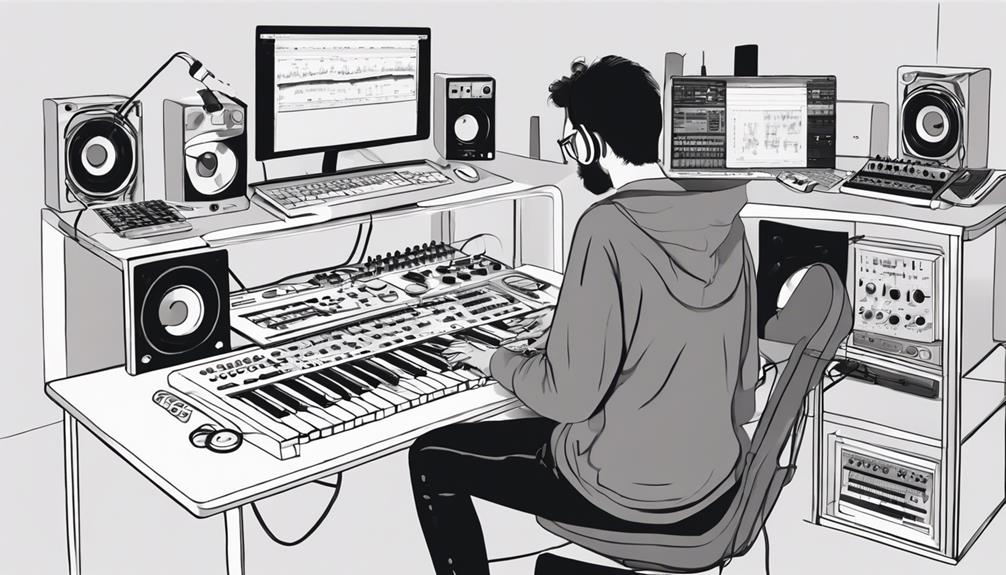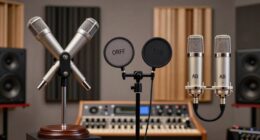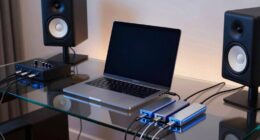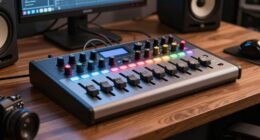To enhance your music production skills, embrace your instincts for unique sounds and master music theory. Understanding your tools and practicing consistently are key. Develop an efficient workflow and explore sound design for textures. Balance variation and repetition for cohesive tracks. Lastly, test your music on different systems for quality. These essential steps will elevate your craft greatly.
Key Takeaways
- Trust your instincts for authentic and bold choices.
- Master music theory for harmonically pleasing tracks.
- Understand and master your production tools efficiently.
- Consistent practice enhances skills and boosts creativity.
- Dive into sound design for unique textures and signature sounds.
Trust Your Instincts
When diving into music production, trusting your instincts is vital to creating authentic and unique sounds. Your personal taste and gut feelings play an essential role in making creative decisions that shape your music.
By embracing your instincts, you can craft music that's a true reflection of your individual style and creativity. It's through trusting your instincts that you can make bold choices, take creative risks, and push the boundaries of your music production.
Allowing your intuition to guide you in making artistic decisions not only helps in honing your skills but also in developing a distinctive sound that sets you apart as a music producer. Your instincts act as a valuable tool in the process of shaping your music, enabling you to produce tracks that resonate with your audience on a deeper level.
Master Music Theory
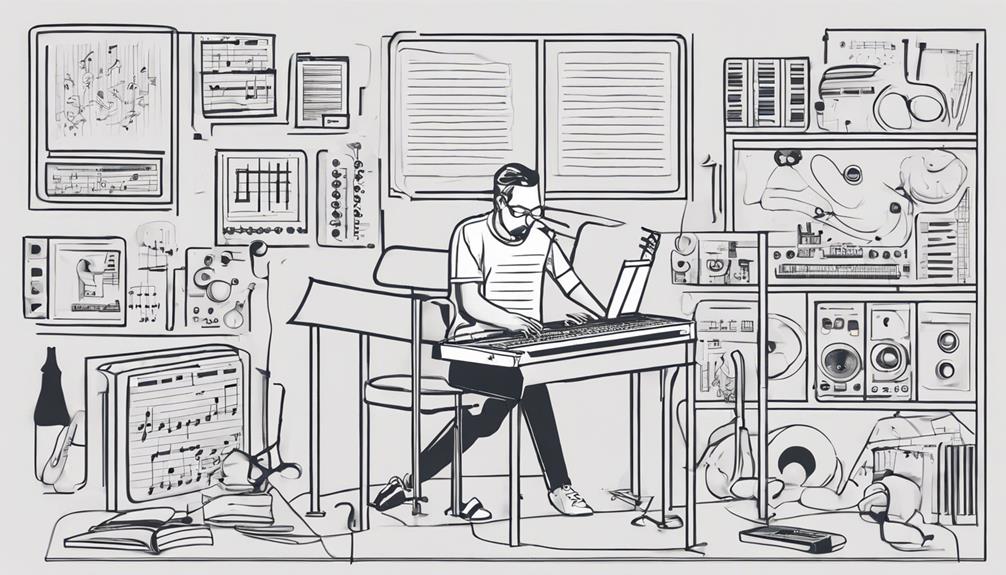
Mastering music theory is essential for producers looking to create harmonically pleasing tracks and enhance their composition skills. Understanding music theory involves grasping concepts like scales, chords, progressions, melodies, harmonies, and composition. Check out the table below for a quick overview of these key components:
| Music Theory | Description |
|---|---|
| Scales | Fundamental building blocks for melodies |
| Chords | Sets of notes played together to create harmony |
| Progressions | Series of chords that form the backbone of a song |
| Melodies | Succession of notes that form a memorable tune |
| Harmonies | Combination of different notes played together |
Understand Your Tools
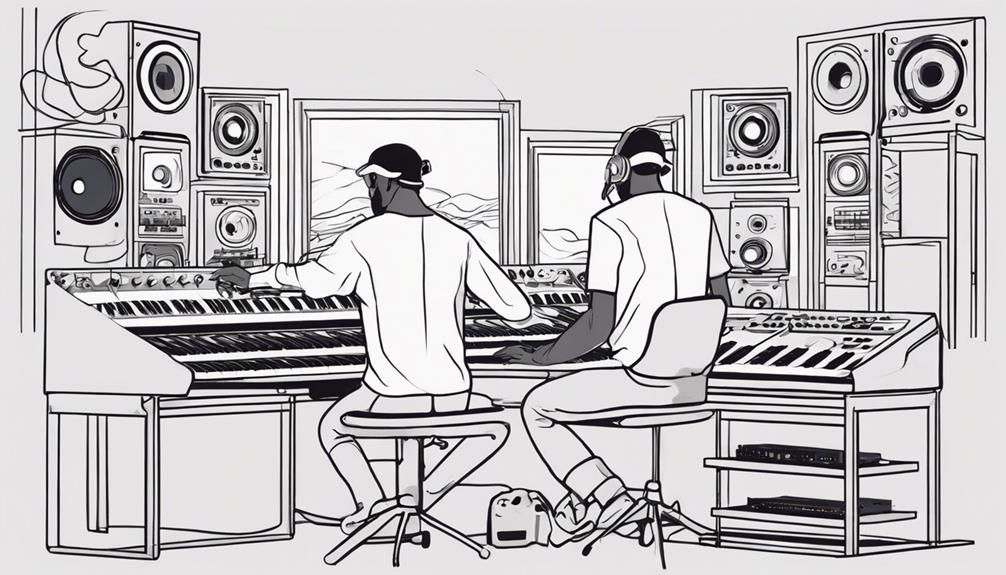
To enhance your music production skills, understanding your tools is essential for efficiently creating high-quality tracks. Master your Digital Audio Workstation (DAW) to streamline your workflow and take advantage of its full potential.
Immerse yourself in the functions and parameters of plugins to effectively shape and enhance your sounds during the production process. Familiarize yourself with different audio formats to make informed decisions that impact sound quality and file sizes.
Explore a variety of hardware and software tools commonly used in music production, such as MIDI controllers and audio interfaces, to broaden your creative options. By delving into different instruments and controllers, you can discover unique ways to bring your ideas to life and add depth to your tracks.
Understanding your tools not only empowers you to navigate the technical aspects of music production but also opens up avenues for creativity and innovation. Whether working independently or collaborating with a mastering engineer, a solid grasp of your tools will elevate the quality of your music production.
Practice Consistently
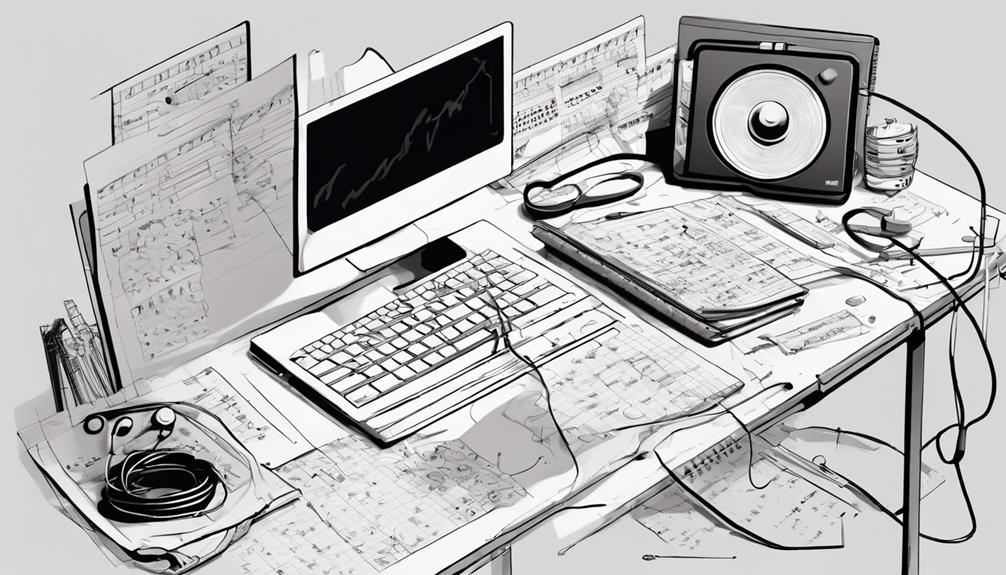
To enhance your music production skills, it's crucial to practice consistently. Setting achievable goals and experimenting with different techniques during your daily practice routine can help you progress steadily.
Daily Practice Routine
For ideal growth in music production, ensuring a consistent daily practice routine is essential. Dedicate at least 1-2 hours daily to practice music production techniques, focusing on improving workflow, refining skills, and experimenting with different genres and techniques. Consistent practice not only helps in mastering tools but also aids in building muscle memory, enhancing creativity, and boosting confidence in your music production journey.
| Daily Practice Tips | Benefits |
|---|---|
| Set specific goals | Track progress effectively |
| Experiment with genres | Discover new styles and sounds |
| Refine techniques | Enhance your skills |
| Practice consistently | Develop a routine for improvement |
Set Achievable Goals
Consistently practicing music production by setting achievable goals is key to steady skill development and progress.
To enhance your music production journey, consider the following tips:
- Set specific, measurable goals: Aim to complete a new track weekly to guarantee regular practice sessions.
- Break down larger goals: Divide your objectives into smaller tasks to stay motivated and effectively track your progress.
- Allocate dedicated time: Schedule specific time slots each day for practicing music production to steadily build your skills.
- Utilize tools for organization: Implement task lists or apps to structure your practice sessions efficiently and prioritize the development of essential skills.
Experiment With Techniques
Dedicate regular time to experimenting with different music production techniques to boost your skills and creativity.
To enhance your music production abilities, try blending genres and styles to develop your signature sound.
Challenge yourself by exploring new tools and software, stepping out of your comfort zone, and embracing unconventional approaches.
By expanding your knowledge and skill set, you can refine your craft and elevate your productions to new heights.
Remember, regular practice is key to mastering these techniques and honing your unique style.
Keep track of your progress by maintaining a journal of your experiments, noting what works best for you, and identifying areas for improvement.
Through consistent experimentation and reflection, you can push the boundaries of your creativity and grow as a music producer.
Develop Efficient Workflow
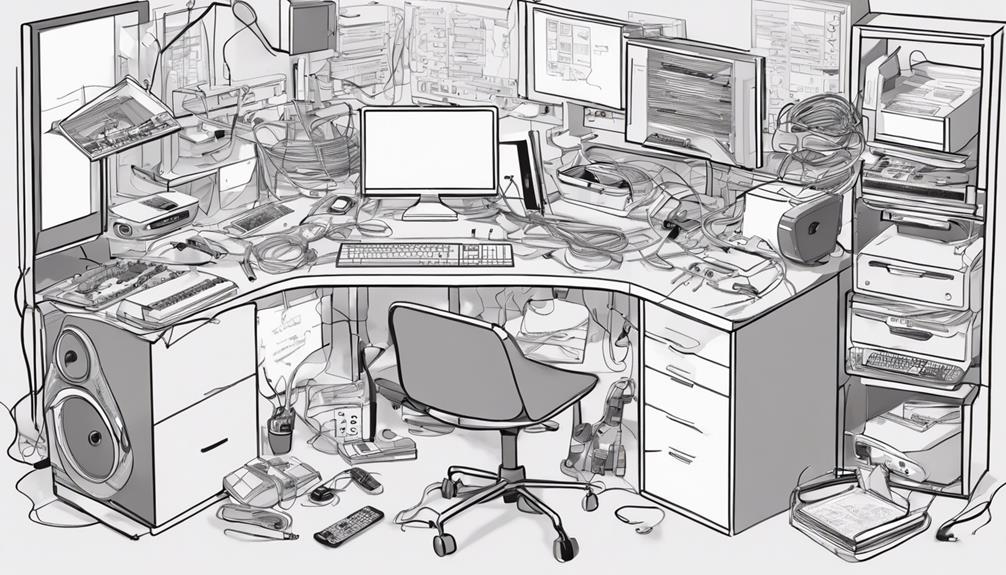
To improve your music production efficiency, consider organizing your workspace and creating a structured plan to streamline your process. Setting up your environment for success can have a considerable impact on your workflow efficiency. Here are some tips to help you develop an efficient workflow:
- Utilize DAW Templates: Save time and maintain consistency by using pre-made templates and presets in your digital audio workstation.
- Take Breaks: Prevent creative burnout by scheduling regular breaks during long production sessions to stay fresh and focused.
- Incorporate MIDI Controllers: Enhance hands-on control and manipulate sounds more efficiently with the use of MIDI controllers.
- Establish a Feedback Loop: Create a system to track your progress, gather feedback, and identify areas for improvement to continuously enhance your workflow efficiency.
Dive Into Sound Design
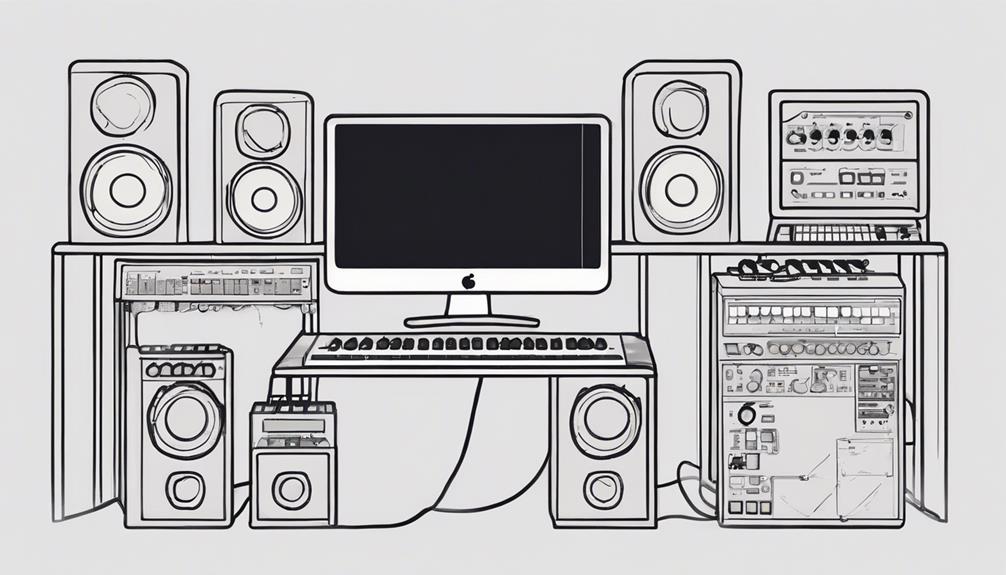
Enhance your music production skills by exploring the world of sound design, where you can cultivate unique sounds and textures to elevate your tracks. Sound design involves experimenting with synthesizers, samplers, and audio effects to create distinct sonic elements. By delving deep into manipulating waveforms, filters, and envelopes, you can develop your own signature sound that sets your music apart.
Understanding the fundamentals of sound design, such as oscillators, LFOs, and modulation, allows you to have precise control over the sonic characteristics of your tracks. Utilize software like Serum, Massive, or FM8 for advanced sound design capabilities and to explore a wide range of sonic possibilities.
Incorporating sound design techniques like layering, modulation, and processing adds depth and texture to your music. By mastering sound design, you can craft intricate soundscapes that captivate listeners and enhance the overall quality of your productions.
Experiment with different tools and techniques to stimulate your creativity and elevate your music to new heights.
Balance Variation and Repetition
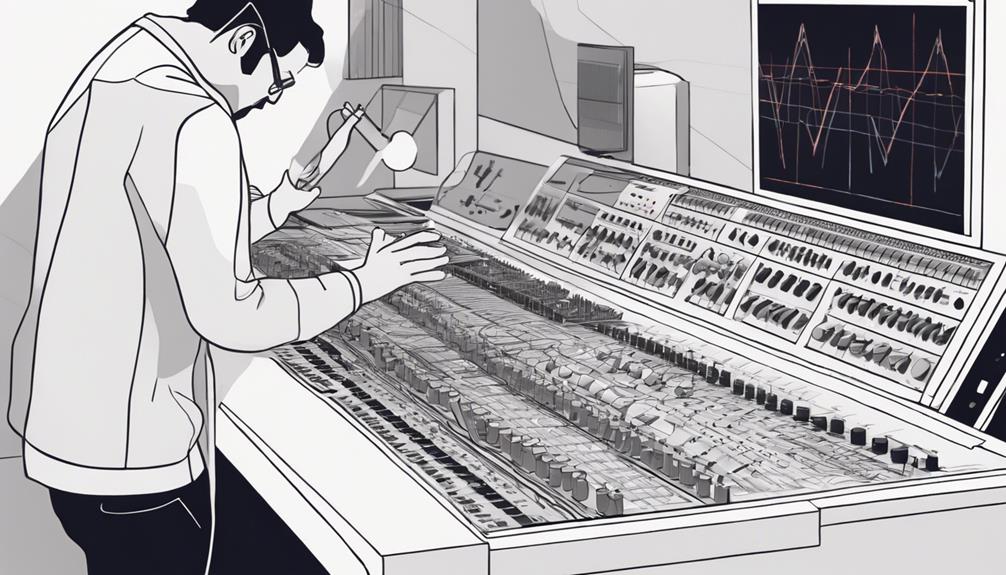
Maintaining a balance between variation and repetition is essential in creating compelling and engaging music compositions. In music production, finding the right mix of these elements can elevate your tracks to new heights. Here are some key points to keep in mind:
- Utilize melody, rhythm, harmony, and sound design: Incorporating these elements thoughtfully can help you strike a balance between keeping your music fresh and maintaining a cohesive sound.
- Avoid extremes: Too much variation can make your music feel chaotic, while excessive repetition may bore your listeners. Finding the middle ground is vital.
- Experiment with subtle changes: Small variations in instrumentation, arrangement, or dynamics can add depth to your music without straying too far from familiarity.
- Create memorable compositions: By balancing variation and repetition effectively, you can craft music that resonates with your audience and leaves a lasting impact.
Test on Various Sound Systems
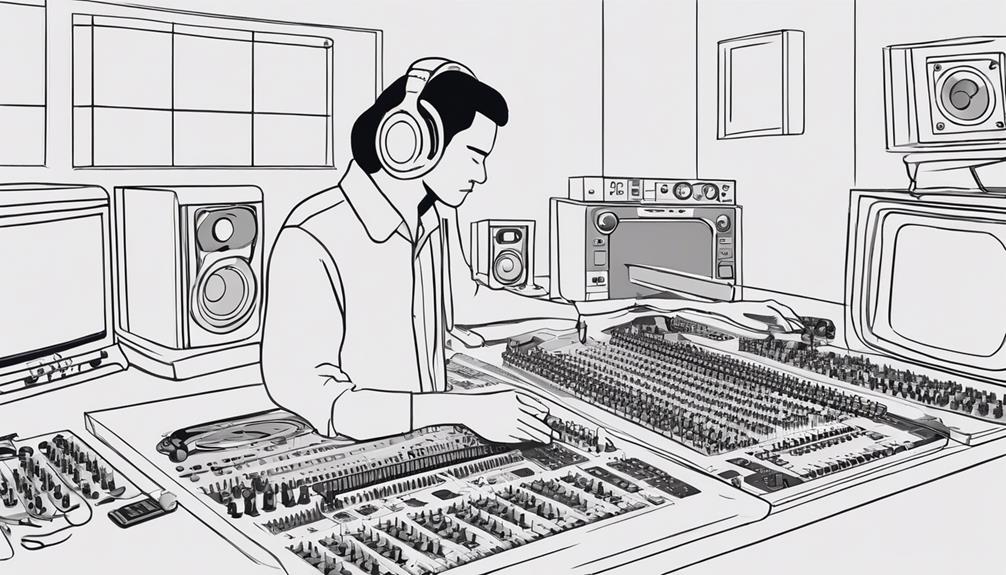
Testing your music on different sound systems is essential for ensuring its quality across a variety of devices and environments. Each sound system, whether it be headphones, speakers, car stereos, or studio monitors, presents unique characteristics that can influence how your music is perceived by your audience.
By conducting thorough testing on these various systems, you can uncover any potential issues or inconsistencies in your mix. This process allows you to make informed adjustments to enhance the overall sound quality of your music.
When testing on headphones, pay attention to the clarity of individual elements and how they blend together. Speakers can reveal the impact of bass frequencies and overall tonal balance. Car stereos offer insights into how your music translates in a moving environment. Studio monitors provide a detailed and accurate representation of your mix.
Frequently Asked Questions
What Is the Best Way to Get Better at Music Production?
To get better at music production, actively listen to various genres, practice consistently, use online resources for learning, experiment with tools, and seek feedback from peers. These actions will help you grow and refine your skills. Additionally, collaborate with other producers or musicians to gain new perspectives and techniques that you might not discover on your own. Stay open to constructive criticism and use it as an opportunity to improve. Remember, the journey to getting better at music production requires patience, persistence, and a willingness to continuously learn and adapt.
How Can I Be a Good Music Producer?
To be a good music producer, study diverse music genres for production insight, practice consistently to refine your style, seek feedback for growth, use DAW tools for quality, and experiment with sound design and mixing techniques to innovate creatively.
How to Get Inspiration for Music Production?
To get inspiration for music production, explore diverse genres, immerse in nature, art, and film, collaborate with peers for fresh ideas, experiment with tools, and document stimuli in a journal. Open your mind to endless creativity.
How Do You Level up Your Music Production?
To level up your music production, practice consistently, explore new techniques, genres, and tools, seek feedback, attend workshops, and stay curious. Embrace growth, learn from others, and adapt to industry trends for continuous improvement in your craft.
Conclusion
You've got the talent, now it's time to hone your skills. Remember, 10,000 hours of practice can make you an expert in music production.
So keep experimenting, keep learning, and keep pushing yourself to create the best music possible.
With dedication and hard work, you can reach new heights in your music production journey.
Keep at it, and soon enough, you'll be amazed at how far you've come.

